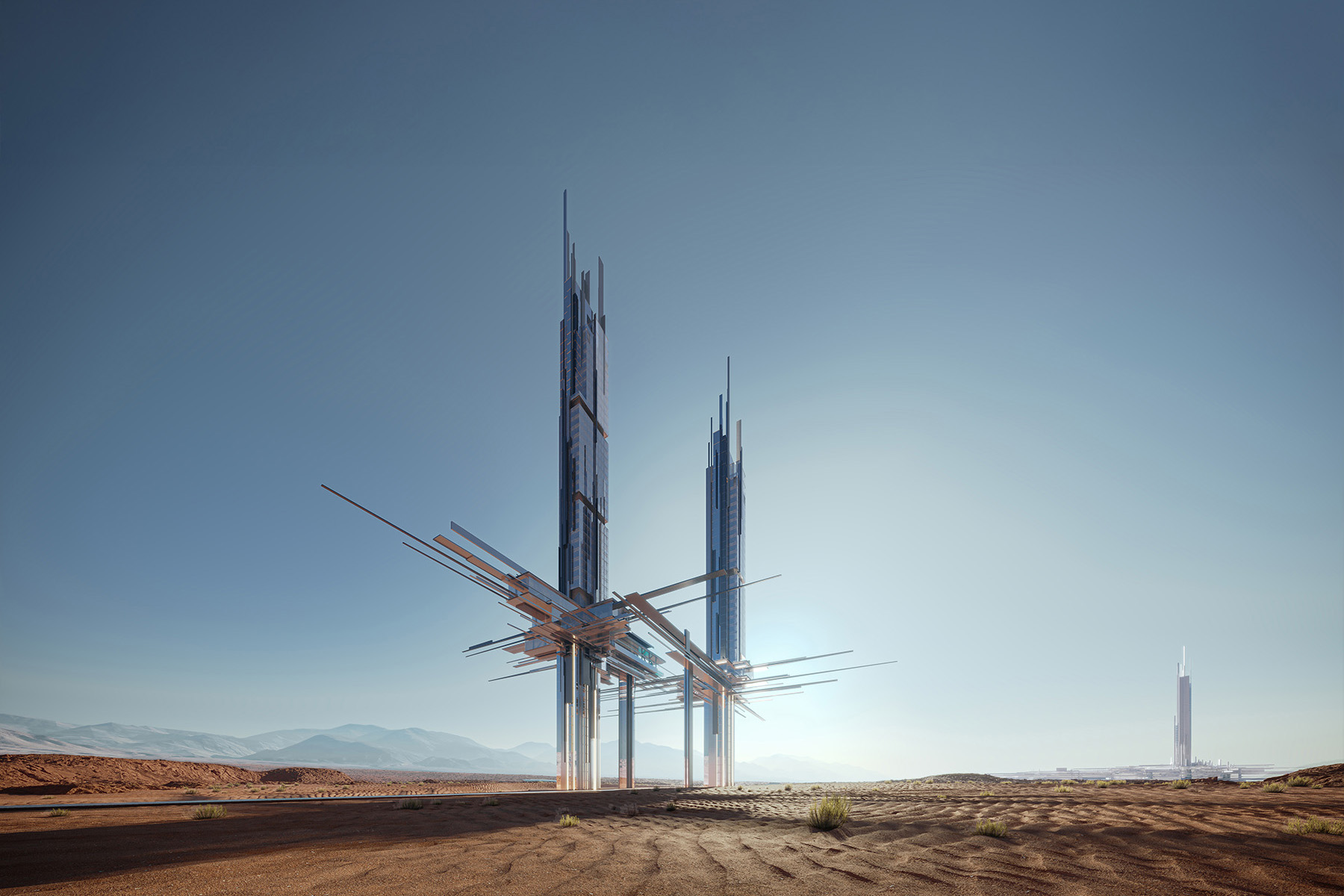
By Kayt Sukel
The NEOM project is a futuristic, luxury coastal planned development to be built in northwest Saudi Arabia. Set in the province of Tabuk near the Gulf of Aqaba, the project’s aims include the “protection, preservation, and regeneration” of nature, which will create “a new model for sustainable living, working and prospering,” according to official webpages about the project. NEOM has received a lot of attention over the past few years, not only for its $500 billion price tag, but also for its ambitious goals of expanding tourism in Saudi Arabia as part of the country’s Vision 2030 roadmap for economic diversification.
A piece of this new development will be Epicon. Imagined by 10Design, the Egis Group’s architecture and master planning practice, Epicon will be composed in part of two striking, jagged-edge towers — one 225 m tall and the second rising to 275 m. With their mirror-clad facades, the towers will house a boutique hotel with 41 rooms as well as suites and apartments. NEOM describes Epicon as a “gateway to the future,” and certainly, the development will look like something straight out of a science fiction novel.
The towers’ horizontal levels will provide guests with community and outdoor spaces, including a pool, gardens, shops, and restaurants. Epicon will also have a beach club in close proximity to the towers with access to the Gulf, and it will be a mix of rooms and villas.
Epicon’s unique look is meant to match the design of NEOM’s The Line, a sustainable megacity housed in a collection of 500 m tall mirrored buildings across a 34 sq km footprint. NEOM boasts that The Line will not have “roads, cars or emissions (and) it will run on 100% renewable energy and 95% of land will be preserved for nature.”
The Epicon project has focused on building with sustainability in mind — a must-have for a region with temperatures that often exceed 100 degrees Fahrenheit in summer. “The sustainable way to build is to utilize natural materials from the vicinity. That will, of course, reduce your embodied carbon,” according to one of Epicon’s architects in a video about the hotel.
The objective of creating an ecotourism destination that relies on renewable energy will be realized in Epicon. Its reflective planes will do more than give visitors the sense that these buildings can defy gravity — they will also increase the towers’ energy efficiency, keeping the buildings cooler by reducing absorption of the sun’s rays.
Kayt Sukel is a science and technology writer based outside Houston.
This article first appeared in the July/August 2025 issue of Civil Engineering as “Shimmering from Sand to Sky.”



